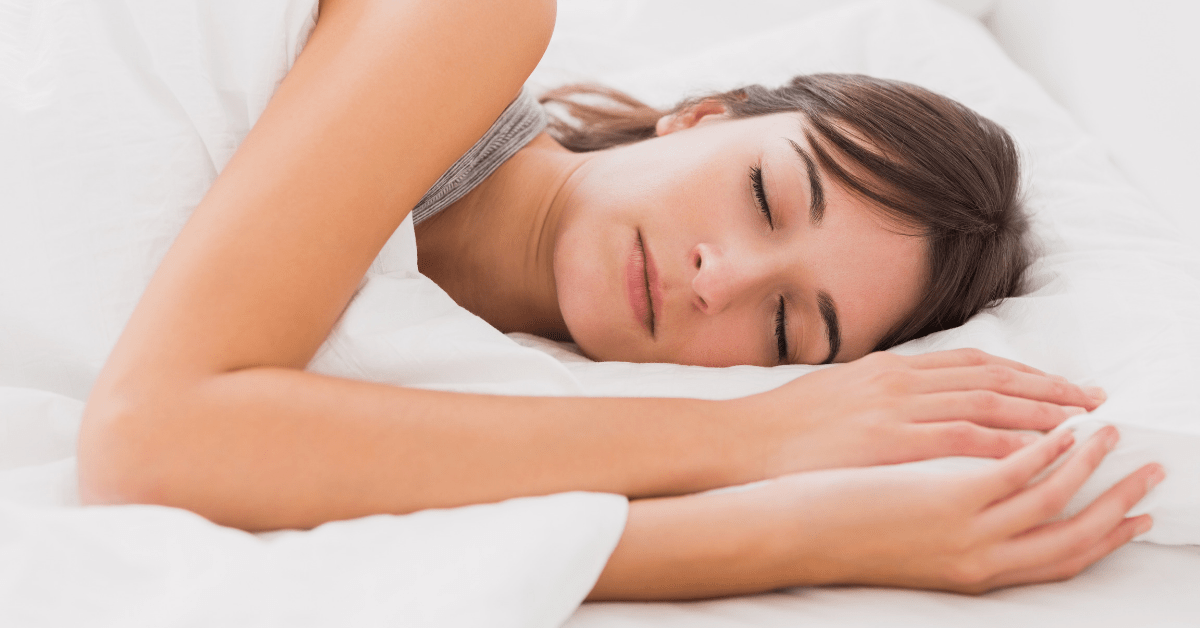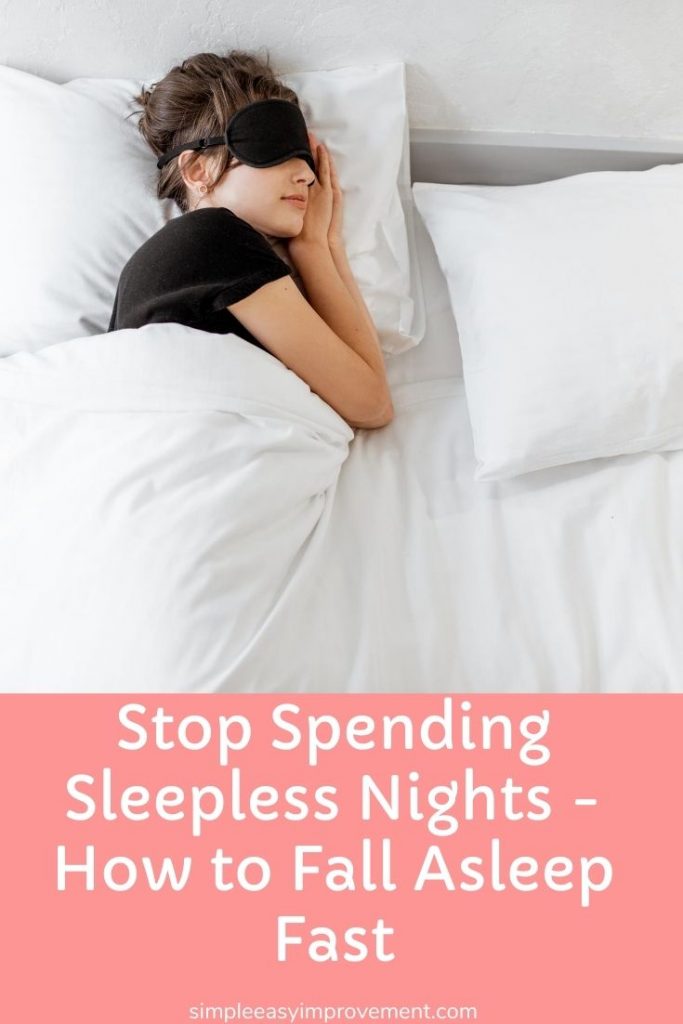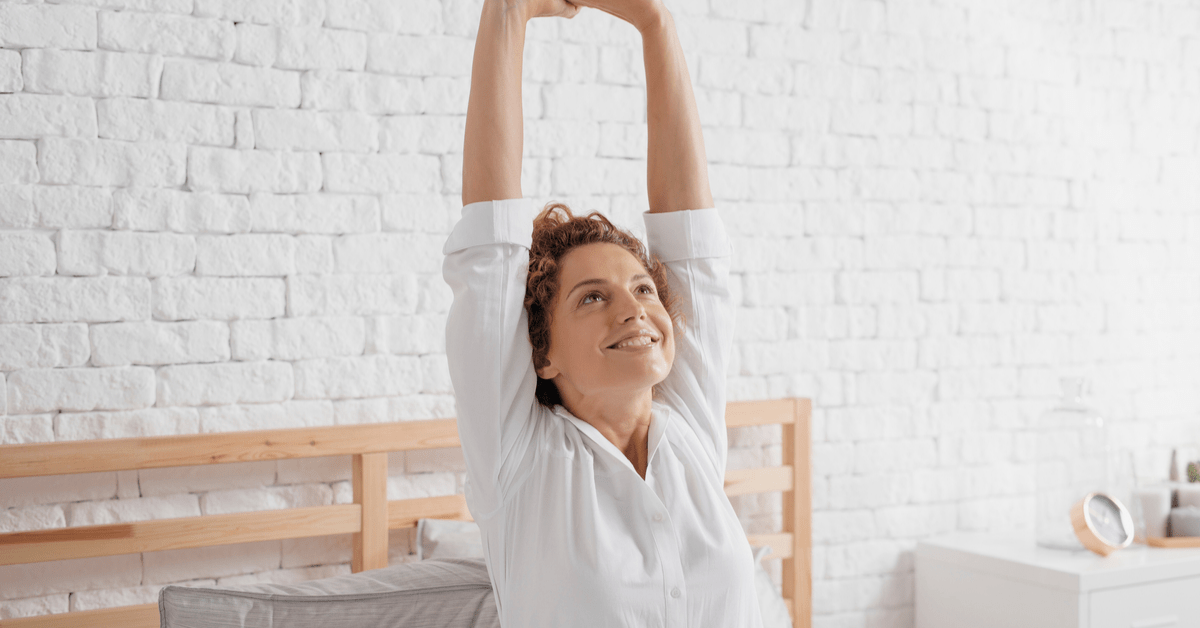
Lucky are the ones who can fall asleep the moment they hit the bed!
The unlucky others have more trouble with sleep. Some of us can feel extremely sleepy for hours, ready to fall into the bed and start snoring, but that doesn’t happen often. Every symptom of sleep disappears the moment we hit the bed and then it’s tossing and turning all night long. Even without clinical insomnia, it takes several hours for some people to finally fall into a deep sleep. This is even true when they were exhausted and extremely sleepy prior to bedtime.
Why Can’t we Fall Asleep Easily?
Most of the time, it’s because we have too much on our minds. We live a stressful life and take our worries to the bed, and this keeps us awake at nights. Our bodies might be exhausted but our minds are brimming with worries and tension when we go to bed, and as a result, we can’t bring ourselves to sleep properly.
Sometimes, the reasons are more simple. We go to bed not when tired and sleep, but much later when completely exhausted. At times, we can’t sleep because we are worried about having to get up earlier the next day. Sometimes, our lack of sleep is because of our habits: exhaustion, nicotine, caffeine and alcohol. Besides, watching TV or immersing ourselves in other electronic gadgets right before sleep can keep it away. In short, most of the time it is our fault that we can’t fall asleep easily.
Good news? There’s always something we can do about it.
How to Ensure Sleep at Bedtime?
What you can do to make sure sleep comes at bedtime are basically some habitual and lifestyle changes. Here are some of the tricks and tips to try!
- Get on a Schedule. The best way to ensure sleep is to enforce a routine sleep time. Going to bed at the exact time and forcing yourself to sleep every day for a week will automatically make you sleepy at the appointed time. You’ll find yourself start to yawn inevitably when your bedtime approaches.
- Dim your Lights. Your bedroom lights should be dimmed way ahead of your bedtime, i.e. at least two hours ago. Unless you are working or doing anything that requires bright light, dim all the lights in your home. Because of bright lights everywhere, we aren’t even aware of night time these days, which hampers sleep. Create the environment of the night in your home and your body will respond likewise.
- Easy on the Gadgets. It is better to stay away from television, smartphones, tablets and iPads at least an hour before bedtime. Especially, you shouldn’t even glance at any electronic devices after you’ve slipped into your bed.
- Hide your Clocks. There shouldn’t be any clocks around you at bedtime. The more you look at a clock and stress about how late it is, the less chance that you’ll be able to sleep easily. Clocks add extra pressure on your mind, and you won’t be able to stop looking at the one in your bedroom after slipping into bed.
- Don’t Take Naps. Naps during daytime are fun, but they can seriously ruin your chances of a good night’s sleep. Even when you are exhausted and sleepy during the day, avoid a nap. Even a short two-hour daytime nap can make you completely aware at night, and make you late for sleep.
- Finish your Dinner Early. Your dinner should be complete at least 2 to 3 hours before bedtime and it should ideally be a low-carb/low-fat meal. Anything that’s rich in both carbohydrate and fat will agitate you before sleep and make you restless. If you do have something that’s not entirely healthy for you, wait for 4 hours before heading off to sleep.
- Take a Shower. A warm shower right before bed can relax and soothe you, and it is the perfect way to spend some gadget-free time before bed. A short exercise session before the shower is even better, but optional.
- Limit Caffeine and Alcohol. Caffeinated drinks, chocolates, sodas and alcohol should be limited to at least 4/5 hours before bedtime. If you want an option for soothing drinks before bed, a good choice is camomile tea which relaxes the body and makes you sleepy. Or warm milk – that always helps.
- Read. This is something that you can do without the help of an electronic gadget. If you are a reader, bedtime is the perfect time for you to get some reading done. Alternatively, you can listen to some soothing music, too – as long as the music doesn’t excite your senses.
- Try Aromatherapy. Certain essential oils can help you feel sleepy. Lavender and damask rose are both known to have a positive effect on your sleep. Spraying some of these essential oils around your bedroom can create a soothing aroma to help you sleep.
Now, some tricks to help you sleep faster once you are in your bed.
- Make your Room Cool. Ideally, the temperature in your room before bedtime has to be a few degrees lower than you are used to throughout the day. You’ll have a harder time falling asleep in a warm environment than in a cool one. Anything between 17⁰C to 23⁰C (62⁰F to 75⁰F) is a good temperature to go to bed, provided that you have a blanket with you.
- Be as Comfortable as you Can. Comfort can mean different things to different people. Some need a blanket while others prefer not to use one; some have a favourite T-shirt and some prefer to sleep in the nude. Besides, there are different positions that people are comfortable. For a good night’s sleep, be as comfortable as you can in your bed.
- Try to Stay Awake. This is called a “paradoxical intention”. The more you struggle to stay awake, the sleepier you are going to feel. This is a proven technique that works on a lot of people, too. It calls for you to force yourself to stay awake instead of trying to sleep so that you ultimately tire yourself and you can drift off to sleep.
- Think Happy Thoughts. Of course, this is to calm you down. When you have happy and positive thoughts in your mind instead of stressful ones, you can fall asleep feeling calmer and more in control of your life.
- Sleep in the Savasana pose. This is a yoga position that requires you to lie straight on your back, with your arms and feet straight on the bed. The Savasanaor the “Corpse Pose” is the ultimate relaxation pose in yoga. It will help you to relax and sleep if you don’t have a favourite sleeping position, or you can stay in the Savasana for a few minutes and then return to your favourite position later.
- Turn on a White Noise Machine. A white noise machine can help, but not everyone finds them so. These are machines that will make an obtuse and continuous noise that can ultimately lull you to sleep. There are usually a number of sounds to choose from: rain falling, birds, static or busy city noise.
- Count Backwards. Start counting backwards from 100. This is a classic sleeping technique that almost always helps. You can make it more interesting, sun as spelling out the words instead of just counting them, or skipping the even/odd ones. Counting will keep unnecessary thoughts out of your mind before sleep.
- Try Progressive Muscle Relaxation Technique. This is a very popular relaxation technique that can help your body relax, limb by limb. It requires you to lie down on your back and then gradually focus on each and every part of your body and relaxing the muscles. You need to start from your toes and by the time you reach your face, your body will start to feel relaxed.
- Start Deep Belly Breathing. This technique should be usually done as a last resort after your body is relaxed and sleepy. Put your hands on your belly and breathe in deep, from inside your belly, and count to 4. After that, hold your breath and count to 7; then, let out your breath as you count to 8. This is also called the 4-7-8 technique.
- Take a Break. If you still can’t sleep after everything, it is time to take a break. Get up and do something else for about half an hour until you start yawning, and then go back to bed.
These techniques – both the lifestyle changes and sleep techniques – together can bring about a good night’s sleep that is so difficult for many people. We all need to sleep for at least 7 to 8 hours every day to be able to fully concentrate on our work, our relationships, our goals in life, and most importantly, our families.



